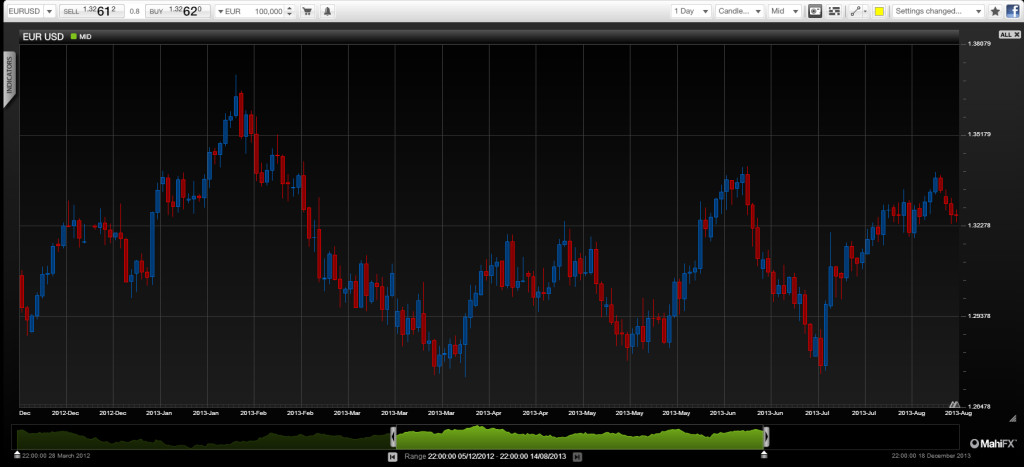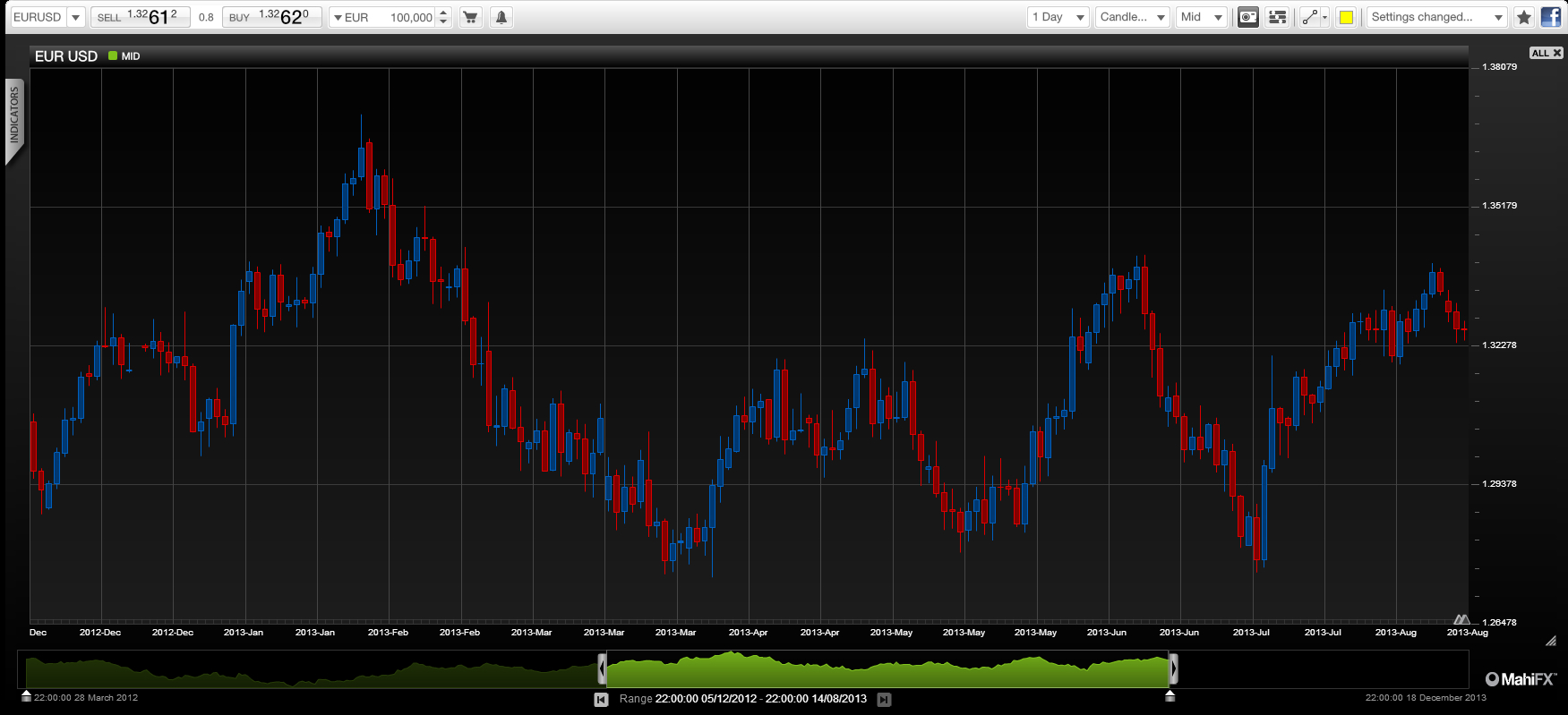Something incredibly rare happened in the Eurozone this week – economic predictions were beaten on the upside lulling many traders and investors into a sense that the Euro crisis is coming to a close. It isn’t.
Germany defied concerns of a slowing economy by registering Q2 GDP growth of 0.7% versus flat lining in Q1 and the Eurozone’s number two economy, France, managed 0.5% in Q2 – both comfortably surpassing the expectations of many economists. Even the struggling peripheral Eurozone countries are showing tentative signs of stabilising.
By Justin Pugsley, Markets Analyst MahiFX Follow MahiFX on twitter
Though the Eurozone crisis has abated for the time being, it is actually alive and well festering just beneath the surface and it won’t take much to kick it off again.
Beware the EUR sirens

Peripheral countries are deeply scarred
The hope is that Germany and France will pull the rest of the Eurozone out of the economic quagmire, at least if they can sustain their own growth. But countries such as Spain, Italy and others are so deeply scarred by austerity that recoveries there could take years to be felt by the majority of the population.
Also, much of their productive capacity has been destroyed making it harder to quickly capitalise on the growth of their neighbours. Indeed, trade surpluses in some of these countries more reflect the widespread destruction of domestic demand rather than a return to competitiveness
This leaves the Eurozone hostage to political events, such as governments imploding in peripheral countries and the rise of extremist parties, which do not share a vision for a united Europe. Unfortunately, economic instability fans political uncertainty and years of depression like conditions in these countries have created a fertile breading ground for extremist views.
In the short-term the biggest economic beneficiaries of German and French growth could be other non-Eurozone European countries such as the UK and Switzerland, which could see their currencies firm further versus other currencies such as USD.
But come September European fund managers will return to their desks and may not entirely like what they see in the Eurozone. There are German elections in late September, which will create a degree of uncertainty and other events such as the US Federal Reserve tapering its quantitative easing programme. The EUR is still far from being saved, let alone the crisis being ended.
Further reading: Worsening Eurozone debt levels could see September Euro sell-off
